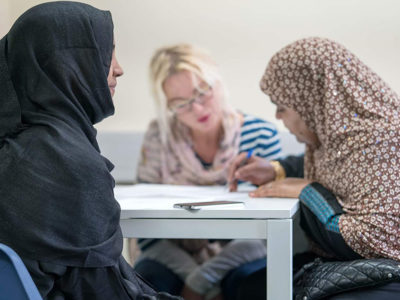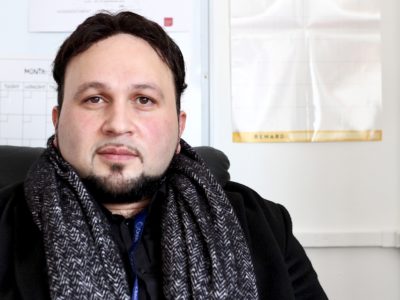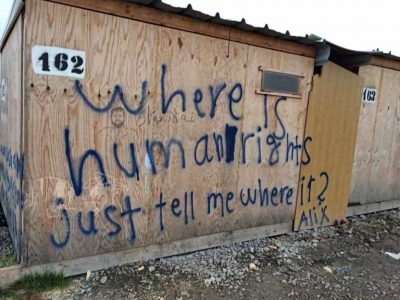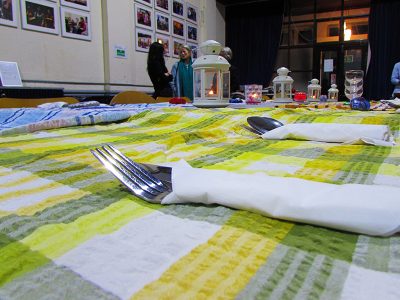The enthusiasm of local people in Cardiff and Wales to help refugees settle is reflected by the current Welsh Government. A plan published in January 2019 established Wales intention to become a ‘Nation of Sanctuary’ in collaboration with the Welsh Refugee Coalition.
This process has been developed in five main categories: ‘Prosperous and Secure’, ‘Healthy and Active’, ‘Ambitious and Learning’, ‘United and Connected’, each subdivided in multiple actions. Most turn towards a positive integration, with projects of inclusion in the workforce, apprenticeships, English lessons as well as community-building projects, cultural enterprise, such as free access to the National museums, etc.
The best way to take part is still to participate, as much as you can, in a small part of this integration process.
Worried it might be difficult? It is only natural to feel somewhat awkward, with the fear of saying something inappropriate, at the idea of meeting people who suffered plenty. Aware of that, Local Welcome tested their project for a long-time before launching it into the world. They planned recipes, organised questions, set-up the whole meals for things to go as smoothly as can be.
You first connect with your guest, one of the refugees invited this day, and start cooking before getting to the ‘share’ bit of the process. Local Welcome describes this part as a ‘grate, chat, chop, talk, peel, listen’ kind of moment. Nothing to worry about!
Rediscover the importance of sharing a meal with Local Welcome, developing strong links between residents and refugees through Sunday lunches

Follow a range of step-by-step recipes while enjoying open-hearted conversations as Local Welcome gets you involved in your community with their residents-refugee meals.
The organisation holds weekly Sunday meals at the Oasis Centre, where 10 refugees are invited to eat with 10 local people, who join for £5. This aims to create a sense of community and inclusion in the city.
Building a community often starts with shared food, as it is an easy way to bring together people from different paths. Local Welcome strongly believes in that.
“Food is universal,” said Claire Brown, Local Welcome’s communication officer. “Cooking and eating together is one of the best things about being human, it’s a language we all share.”
As small chats lead to deeper discussions, all the while preparing food, members evolve from strangers to friends. Claire said, “At our meals people can relax and be themselves, there’s no pressure – just an opportunity to get to know a stranger and make friends.”
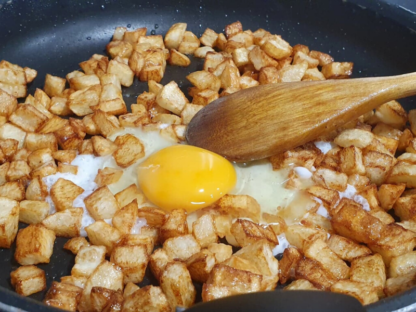
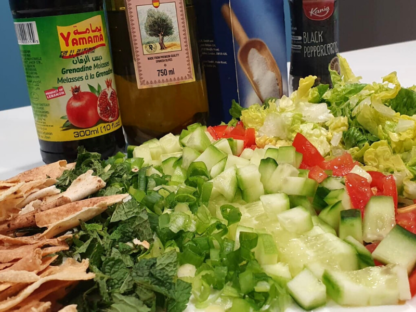
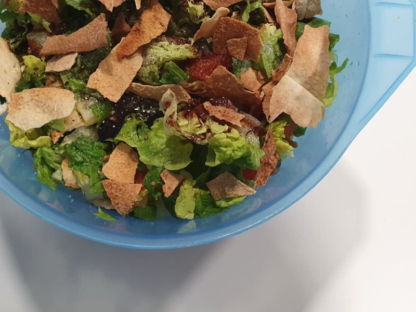
Follow step-by-step recipes and discover food from around the world (here, some Lebanese dishes: batata wa beid and fattoush)
Everyone is welcomed in this rising community: from team leaders, involving a bit more dedication, to support members, offering to be there one meal a month, and the one-time-only members.
James Little, a member, wrote on Facebook, “The important thing is that if you eat food, and enjoy talking to people, then you’ve got the skills to contribute to this model!”
If some organisations struggle with the Christmas spirit, Claire said, “Our meals consistently sell out, so demand is already high!”
She added, “While people think of Christmas as a time to reach out to others, our meals enable people to do this all year.”
Projects trying to develop links in communities involving refugees gained popularity in Cardiff this past year. Food events continue to prove it is a useful medium, from Syrian families in Aberystwyth launching their pop-up restaurant to more intimate communities created by Local Welcome.
Claire concludes, “They’re very fun and the people of Cardiff keep coming back week after week.”
The enthusiasm of local people in Cardiff and Wales to help refugees settle is reflected by the current Welsh Government. A plan published in January 2019 established Wales intention to become a ‘Nation of Sanctuary’ in collaboration with the Welsh Refugee Coalition.
This process has been developed in five main categories: ‘Prosperous and Secure’, ‘Healthy and Active’, ‘Ambitious and Learning’, ‘United and Connected’, each subdivided in multiple actions. Most turn towards a positive integration, with projects of inclusion in the workforce, apprenticeships, English lessons as well as community-building projects, cultural enterprise, such as free access to the National museums, etc.
The best way to take part is still to participate, as much as you can, in a small part of this integration process.
Worried it might be difficult? It is only natural to feel somewhat awkward, with the fear of saying something inappropriate, at the idea of meeting people who suffered plenty. Aware of that, Local Welcome tested their project for a long-time before launching it into the world. They planned recipes, organised questions, set-up the whole meals for things to go as smoothly as can be.
You first connect with your guest, one of the refugees invited this day, and start cooking before getting to the ‘share’ bit of the process. Local Welcome describes this part as a ‘grate, chat, chop, talk, peel, listen’ kind of moment. Nothing to worry about!


